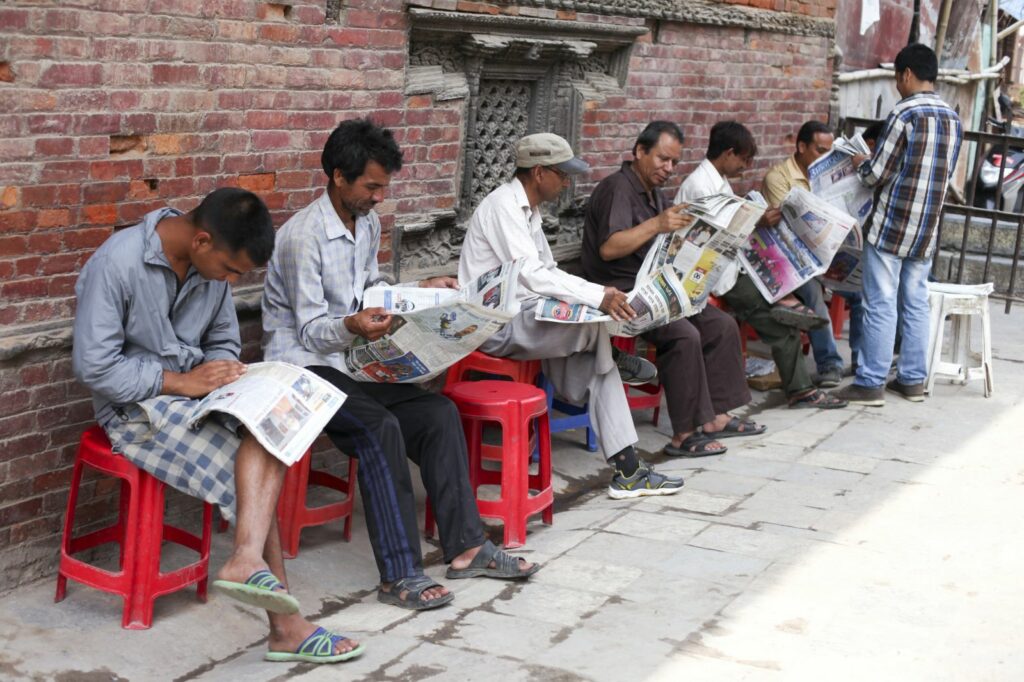Why press freedom matters for peace
This year’s World Press Freedom Day on 3 May rightly highlights the media’s role in advancing “peaceful, just and inclusive societies”. In International Alert’s peacebuilding work in conflict-affected countries around the world, journalists often play key roles by raising people’s awareness of their rights, holding governments to account and promoting non-violent responses to conflict.

The focus of this year’s World Press Freedom Day is also on the ongoing challenges of threats to “journalists’ safety and impunity for crimes committed against them”. These are challenges that Alert recognises. They are especially pressing in South Asia, where we have worked for several decades, and where this year most states are in the bottom third of 180 countries ranked for their press freedom by Reporters Without Borders.
In two countries in this region, Nepal and Pakistan, Alert country teams are working with media organisations to address these challenges with the aim of supporting press freedom and freedom of expression.
Nepal
In Nepal’s post-conflict period, expectations of a flowering of freedom of expression have not been realised. Instead, violence against journalists has led them to self-censor in order to stay safe, meaning they avoid covering issues such as corruption, illicit economic activity and human rights violations.
A recent survey of 100 journalists conducted by Alert found that many feel unsafe doing their job (55%) and have been threatened while working (62%).
Alert is running a project with the Federation of Nepali Journalists, with the support of the European Union, to improve journalists’ skills to document attacks and threats directed at the media, to gather evidence to hold perpetrators to account and bring impunity for such crimes to an end. This includes creating a database of evidence for attacks and threats, which will generate information for a campaign calling on the government to take action to strengthen press freedom.
Pakistan
The survival strategy of self-censorship also exists amongst the media in Pakistan. Here, a major constraint on freedom of expression is an insecure environment for journalists, many of whom fear a backlash from their reporting on sensitive subjects. For the same reasons, journalists avoid reporting on corruption, illicit economic activity and human rights violations.
A recent survey of 409 journalists conducted by Alert found that 42% had experienced threats or intimidation while doing their job, in person, by telephone and electronically, including via social media.
Learning from previous experience in Nepal, International Alert’s Pakistan team is working with the local non-governmental organisation Journalists for Democracy and Human Rights to increase the safety of journalists. As in Nepal, this involves improving how evidence of attacks and threats directed at the media is documented. This evidence can then be used to lobby the government to improve policy and practice to end impunity for perpetrators and reduce these crimes.
Not just safety
Working towards improving the safety and security of journalists is only one part of what Alert is doing by engaging the media in both countries.
We believe that the success of the media’s role in advancing peaceful societies depends on how inclusive the media itself is and whether it avoids doing harm.
In Pakistan and Nepal, this means the media must create spaces for the voices of women and minority groups in mainstream news and opinion content, and for women journalists, as well as individuals from minority groups, to thrive in the media sector.
It also means the media in both countries must get better at producing content that is objective, responsible and does not stoke existing tensions within specific communities or wider society that might lead to violent conflict.






